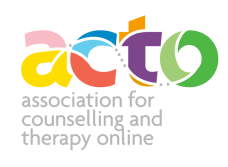Why keep on dragging up the past?
This is something I hear a lot and I can understand why people may not see the
relevance of the past when they are upset about something that happened at
work last week.
Each of us is unique. From our earliest moments, we observe everything that
we see and hear and everything that we see and hear is, of course, normal to
us. We develop our self value according to our interactions with others and
develop a core belief about ourselves that can affect us for the rest of our lives.
If we are told to be a ‘good girl/boy’ for Mummy then this would imply that we
should be compliant and we may then find it hard to complain or stand up for
ourselves. Similarly, if we are told that we are ‘bad’ or ‘stupid’, this can become
our identity and stops us from believing that we are capable and worthy of the
things we would like. I expect we can all remember something that was said at
primary school that still lives with us!
To show how deep seated these early values can be, you may remember going
to play at a friend’s house when you were young and how very shocking it was
to discover that you were allowed to eat sweets before tea (or that you weren’t).
So you can see how talking about early experiences is a very important part of
counselling. Knowing your early experiences will help me to understand you
better and how these have shaped your view of the world, your place in it and
also the internal pressures and expectations you put on yourself.
So when you come to see me about your anxiety around your forthcoming
appraisal at work we can take into account the difficulties you had at school and
your feeling that your parents never praised you and that nothing you did was
ever good enough.
Whenever I meet a new client I always go through their early life as I feel it is so
important. This would not mean making my client relive every painful detail in
great depth, it would be no more than about 5 minutes, I call it ‘a quick trot’. It is
surprising how often my clients start to see for themselves the roots of their
issues. This helps them to realise that their self identity is not fixed and that
positive change is possible.
So next time you hear that counsellors ‘drag up the past’ then you will
understand the reasons behind it and how beneficial it will be for your therapy.
Mari







